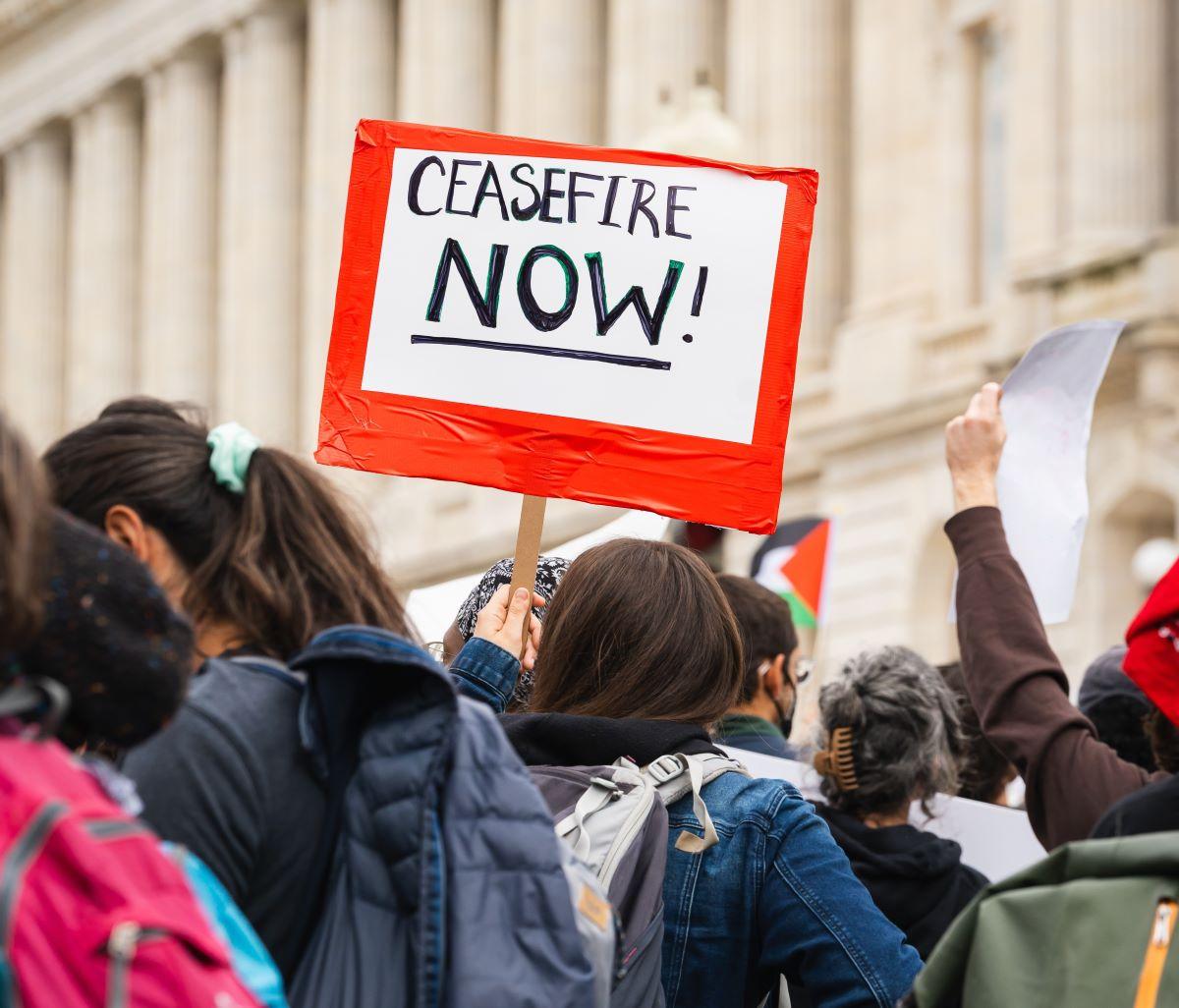Contemplating What Leadership is Required for the Israeli-Palestinian Conflict

Several country leaders and international organizations have called for taking measures toward an immediate cease-fire in the Israeli-Palestinian conflict. According to professor of history at the University of Michigan, Juan Cole, we can no longer talk about a two-state solution and what will happen next will be one of three: continued apartheid, ethnic cleansing, or a one-state solution (Cole, 2023). Given the scale of an already fast-evolving tragedy, we most urgently also need to develop the conditions for safety, security, and peace. What will happen next absolutely depends on how we lead, individually and collectively.
Emerging Leaders
On Monday, Oct 23rd, Miller apparently put forward, “Qatar is a longtime partner of ours who is responding to our request, because I think they believe that innocent civilians ought to be freed,” (Gambrell, Oct. 23, 2023). Certainly, Qatar has a unique position with its "open-door" foreign policy. The country hosts the Al Udeid Air Base. On the other, Islamist leaders it hosts, include Khaled Mashaal, an exiled Hamas member, and, let me underscore, the Hamas political office. Most argue such connections with Hamas leadership are problematic. What leaders cannot afford to underestimate is the role that ‘trust’ plays.
Qatar has made some strides in women’s rights and gender issues in the past decade since my country coverage of the situation of women in Qatar (see Krause, 2014) but also continues to repress the rights of lesbian, gay, bisexual, and transgender people and criminalize same-sex relations, has few minimal protections for foreign workers and domestic workers, and none for the bedoon (those locally without citizenship), among numerous groups continue to be repressed on many fronts. That said, before countries get too smug with their assumed human rights records, we might reflect here too. In Canada, 618 First Nations communities are not supplied with safe drinking water despite the country having the world’s third largest freshwater reserves (Yenilmez, 2023). This is a western democracy, for whatever such terms summon in the imagery we hold of a free country. Presently, Qatar is referred to as the Switzerland of the Middle East with its first shift seen with the Rafah border crossing opened to some.
Five Facets to Shifting the Conflict
To shift the conflict to peace, we need leadership towards the goals of human dignity and basic human rights. That leadership can embrace complexity adaptively by working with players from vastly different spheres and positions. From this acumen, it can navigate complex tensions and polarizations in ways that support inclusivity and the dignity of all life. Such leadership can see through biased lenses by first knowing its bias and being clear on its values, and by understanding the interests, values, and drivers of the other players, and regardless of perceived divides willfully chooses to serve the interests of the whole.
Beyond foremost a critical cease-fire, I suggest five facets we might consider for shifting the conflict which I believe any leader can embrace. These arise from personal contemplation. First, in view of the long-term, any shifts to an eventual one-state solution or peace will require a broker. Qatar has demonstrated some bold and swift leadership in these early days. Further, countries need to coordinate efforts and work together to comprise the diplomatic player or group. Second, the outcome of this polarization, as in the current trajectory, will be determined by how power is exercised not only within or from Israel and Palestinian territories but more broadly. A refusal is needed, that is, exercising power in multiple forms, beginning with the ‘self’ or individual where mobilization of the ‘self’ must be epistemological, methodological, and more so a cultural refusal (McGranahan, 2018).
Third, while UN leaders, regional leaders, country leaders, and various political actors are often drawn upon for anything political, this conflict also needs participation among those often thought of as apolitical. State actors comprise one aspect of systems of change. These further groups and movements are not apolitical but rather potentially significantly political because they, too, can serve instrumental change (Krause, 2012). As such, “diplomacy requires working with a range of actors, both official and unofficial” (Sen, 2021).
Fourth, can we take a stretch and look at how eventual peace might be achieved unconventionally by applying the concept John Gottman teaches based on extensive research on relationships (Gottman, n.d.). Shifting current sentiments and building trust will take time and require heavy positive investment moving forward in the process of engagement of reconciliation. Fifth, what if we endeavor to check our biases and question many of the assumptions we hold as another leadership stretch? A collective refocusing on safety, security, citizenship, and peace depends on the work we also do individually on this front. We need a much stronger vision of a state in which all lives are not only included but matter.
References
Cole, J. (2023, Oct. 21). 3 Possible Futures for Palestinians: One-State Solution, Continued Apartheid or Ethnic Cleansing (Again), Informed Comment, https://www.juancole.com/2023/10/palestinians-continued-apartheid.html
Gottman Institute. (n.d). https://www.gottman.com
Krause, W. 2014. “Qatar,” in May Seikaly, Rahil Roodsaz and Corine van Egten, The Situation of Women in the Gulf States, Atria Institute of Gender Equality and Women’s History for the Directorate General for Internal Policies, Policy Department Citizens’ Rights and Constitutional Affairs: Women’s Rights and Gender Equality. European Union: Brussels, pp. 159 – 174. http://www.europarl.europa.eu/studies
Krause, W. (2012). Civil Society and Women Activists in the Middle East. London: I.B. Tauris.
McGranahan, C. (2018). “Refusal As Political Practice: Citizenship, Sovereignty, and Tibetan Refugee Status.” American Ethnologist 45(3), pp. 367–79.
Sen, A. K. (2021, June 14). Practicing Peace and Conflict Diplomacy in a Complex World, United States States Institute of Peace. https://www.usip.org/publications/2021/06/practicing-peace-and-conflict-diplomacy-complex-world
Yenilmez, S. (2023, May 29) Indigenous Safe Drinking Water Crisis in Canada- overview. The Indigenous Foundation, https://www.theindigenousfoundation.org/articles/indigenous-safe-drinking-water-crisis-in-canada-overview
Photo credits: Gayatri Malhotra on Unsplash
Note: This article is extracted from a piece under review for publishing.